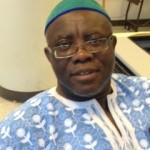
This means the need to shift policy focus from sheer revenue collection to efficiency. It would also mean a healthy breaking down of operator monopoly. We are told that the government’s decision to terminate its contract with Subah Infosolutions, the current operator of the national telecommunications system, was informed by the profit-and-loss ledger or what Americans call the Bottomline. It appears that Subah Infosolutions had been operating at quite a humongous loss to the Government, which also means that the Ghanaian taxpayer was not getting the requisite value for her/his investment.
More poignantly, it well appears that the proverbial monkey was working fruitlessly for the primary and especial benefit of the baboon. Not to get unnecessarily sidetracked, but it appears that the same proprietor/proprietors involved in the GYEEDA Epic Scandal had also been permitted to grossly mismanage our national telecommunications system, almost as if no other viable corporate competitors existed in the country. This is a gross and crass display of the abject lack of development thinking, which may be the bane of woeful technological underdevelopment, and not simply a matter of how revenue gets collected.
In other words, if our leaders cannot rationally think out ways of making our telecommunications system function more efficiently and cost-effectively, then we had better forget about sustainable national development. I am also having a hard time coming to terms with this bizarre idea that, somehow, telecommunications systems operations ought to be centralized into a monopolistic enterprise. This is thinking “in the box,” a veritable policy planning and executional stasis. With this sort of regressive thinking, to speak much less about downright primitivity or primitiveness, it is not surprising that our leaders are having such a difficult time decentralizing the way that governance is done in the country, particularly at the local level.
I am here, of course, much less interested in whether Afriwave Telecom Ghana Limited secured its latest contract with the Government fraudulently or not, for this is Ghana where every aspect of public business has been politicized to the inescapable level of the dramatically absurd. I have absolutely no doubt in my mind that even if the “right” company had secured the contract from the National Communications Authority (NCA), there would still have been questions bordering on legitimacy and efficiency to answer, and then to the interminable dissatisfaction of critics and vested interests.
Whether the Afriwave deal was “legit” or not is decidedly beside the point. Rather, the savviest question to ask is whether the monopolistic operation of our national telecommunications system is the best possible alternative for the advancement of our beloved nation in this sector of our national life.
*Visit my blog at: kwameokoampaahoofe.wordpress.com Ghanaffairs
The opinions expressed are the author’s and do not necessarily reflect the views or have the endorsement of the Editorial Board of www.africanewsanalysis.com, www.africa-forum.net and www.wapsfeatures.wordpress.com
